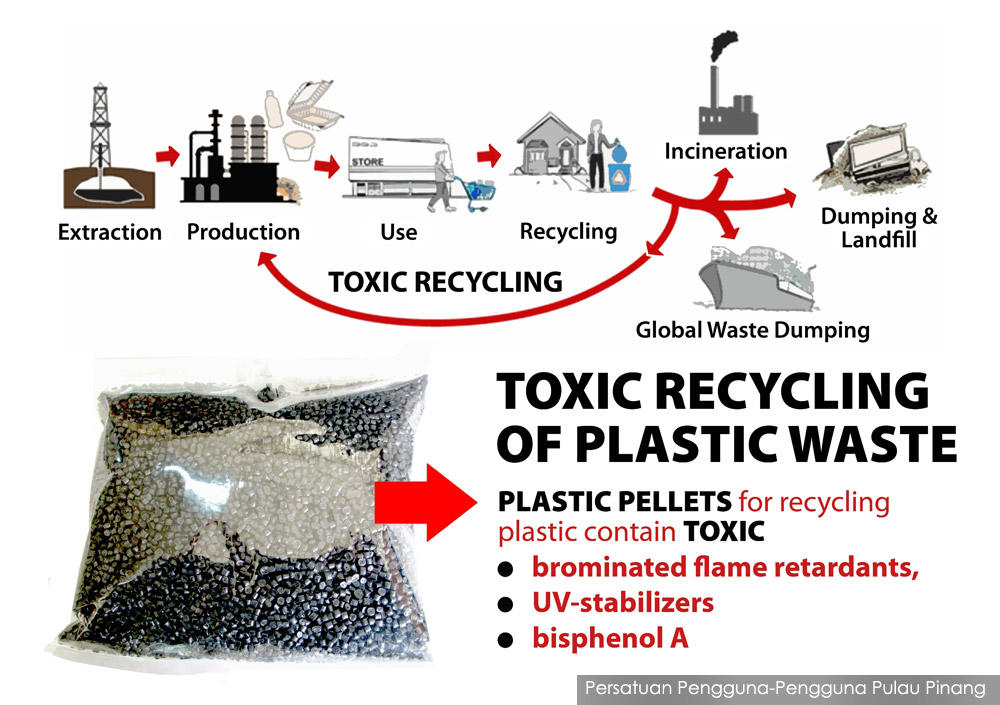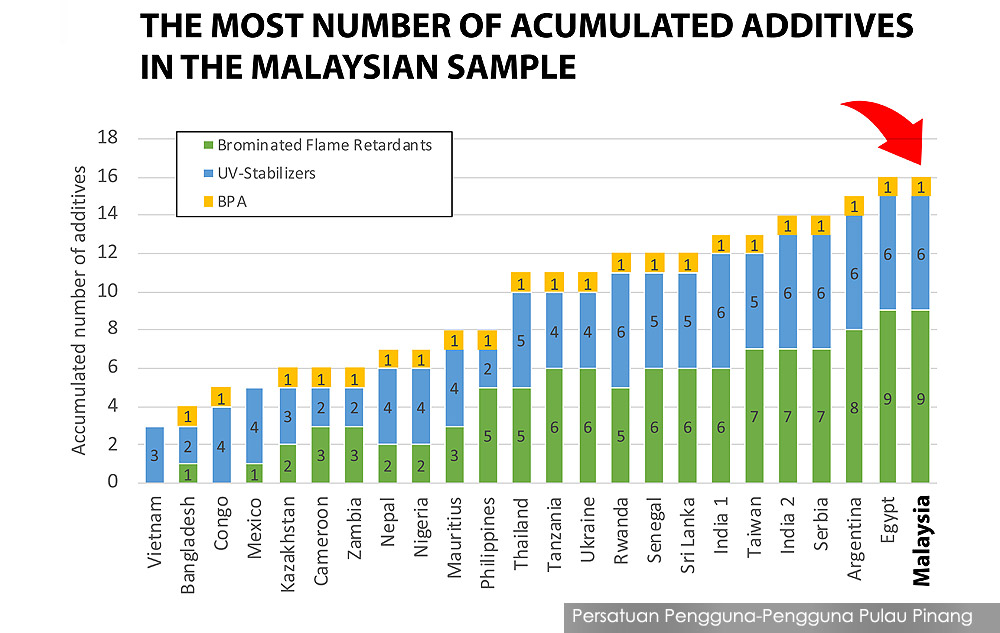A consumers' association has urged the government to rethink its policy towards the business of importing plastic waste for recycling and impose strict regulations on plastic disposal activities in the country.
According to the Consumers Association of Penang (CAP), a recent study that it participated in found plastic waste recycled in Malaysia containing toxic chemicals hazardous to health.
"While the recycling of foreign plastic waste can be lucrative, the lack of regulations and oversight has caused a myriad of problems.
"This is because plastic unsuitable for recycling may be disposed of by burning, releasing toxic chemicals into the atmosphere. Or it ends up in landfills, potentially contaminating soil and water sources.
"Used plastic is recycled into pellets, which are then used to manufacture other plastic products. Tests conducted on these pellets detected chemicals that are hazardous to health," CAP president Mohideen Abdul Kader said in a statement.

16 chemicals found
He said CAP had participated in a study with the International Pollutants Elimination Network (IPEN), which involved 23 other NGOs from 23 countries, where they analysed recycled plastic pellets.
On CAP's part, it had obtained pellets from a plastic recycler in the country which resells the product locally and for export. The pellets were meant to be turned into new products.
"These pellets were analysed for the content of three groups of chemicals that are all known to be hazardous: benzotriazole UV-stabilisers, brominated flame retardants and bisphenol A (BPA).
"The pellets from CAP were found to contain all of the three groups of chemicals analysed. They contained 16 chemicals, including nine flame retardants, six UV-stabilisers and BPA.
"The chemicals detected in the samples also included 10 endocrine-disrupting chemicals."

Not suitable for new products
Mohideen said that a science adviser at IPEN concluded that the plastic pellets from Malaysia were unsuitable to be used in making new products, especially products that children will be exposed to.
In light of its finding, CAP called on the government to ban plastic waste trades and to promulgate laws to govern the recycling and disposal of plastics in the country.
"Manufacturers should phase out the use of toxic chemicals in plastics, and make sure to disclose any toxic content to downstream users, consumers, recyclers and waste management personnel," he added. - Mkini




No comments:
Post a Comment
Note: Only a member of this blog may post a comment.